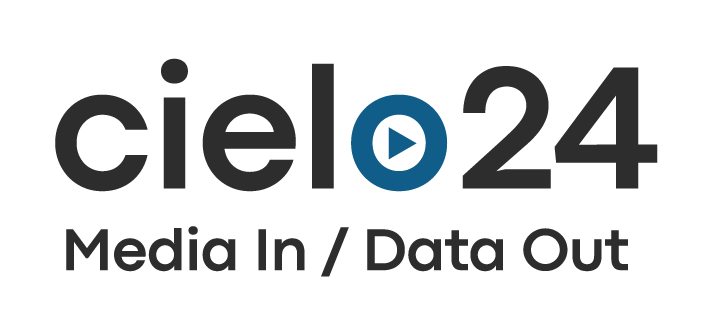How to Secure Funding for Accessibility Technology & Programs One of the biggest challenges to…

The Transformative Impact of Online Education on Higher Education
The Impact of Online Education on Higher Education is nothing short of a transformative force, challenging the traditional in-person model and revolutionizing the learning experience. As we witness the success of online institutions like Coursera, Southern New Hampshire University (SNHU), Western Governors University (WGU), and others, it becomes evident that this evolution is reshaping the landscape of higher education.
The impact of online education is expansive; it represents a paradigm shift in how students approach their academic journey. Online platforms allow students to complete their degrees in less time, leading to more significant earning potential, reduced debt, and increased satisfaction. Long-term studies conducted by Gallup reveal these positive outcomes, reinforcing the credibility of online education.
Growth and Acceptance of Online Education
In 2016, the number of students registering for Coursera’s online courses reached 21 million. Over the next two years, this number steadily increased by around 7 million annually. However, the demand for online education skyrocketed when the COVID-19 pandemic forced a shift to remote work. Registrations experienced a three-fold surge, reaching 71 million in 2020 and further escalating to 92 million in 2021.
The trend of increased enrolments in online learning also mirrored this pattern, with substantial spikes overshadowing pre-pandemic gains. In 2020, course enrolments more than doubled, and the following year witnessed a 32% increase, peaking at a remarkable 189 million.
These remarkable surges in registrations and enrollments signify the growing global acceptance and recognition of the effectiveness of online teaching. It encompasses a diverse range of learners, including those pursuing higher education remotely and individuals from vulnerable or remote communities who now have increased access to educational opportunities.
New Opportunities and Inclusivity
Students are drawn to the flexibility and convenience offered by online programs. With the ability to learn from anywhere, at any time, they are no longer bound by the limitations of physical classrooms. Traditional institutions are taking note of this trend, recognizing the need to adapt and incorporate online elements into their models. Many universities are reorganizing academic structures, developing shorter degree pathways, and expanding certificate offerings to meet the evolving needs of students.
Furthermore, online education fosters inclusivity. Unlike traditional institutions that rely on selective admission processes, online universities prioritize expanding access to education for all individuals. This commitment to reaching every student ensures that opportunities for personal growth and professional advancement are not limited by geographical location or social circumstances. As a result, online education attracts a diverse student body, offering a rich and dynamic learning environment.
Contrasting these findings with the recent research conducted by the Lumina Foundation and Gallup reveals a stark difference in perceptions. According to their latest study, approximately one-third of U.S. adults without a postsecondary degree believe that higher education is accessible to most Americans who desire it. However, in collaboration with Gallup, the 2022 State of Higher Education study by the Lumina Foundation paints a different picture. The study found that only 9% of noncollege Americans believe that affordable, high-quality higher education is available to all those who seek it. In comparison, an additional 21% believe it is accessible to most individuals. A significant % of respondents, 71%, believe that no more than half of the American population has access to quality education beyond high school. These findings highlight the prevailing skepticism regarding the widespread availability and affordability of higher education opportunities in the United States.
The appeal of online programs lies in their flexibility and convenience, liberating students from all types of constraints. Traditional institutions adapt by incorporating online elements, reorganizing academic structures, and expanding certificate offerings to meet evolving student needs. Moreover, online education promotes inclusivity by expanding access to education, ensuring personal growth and professional advancement opportunities are not restricted by location or social circumstances. The diverse student body contributes to a vibrant and dynamic learning environment.
The Student-Centric Approach
Online institutions prioritize the needs and aspirations of students, standing out through their market-responsive programs that align with employer demands. This focus equips graduates with the skills and knowledge needed to excel in the modern job market. Additionally, online education offers potential cost savings compared to traditional universities, which have experienced significant tuition fee increases. Online institutions address this issue by providing more cost-effective options, enabling students to pursue their educational goals without incurring excessive debt.
Rather than solely focusing on faculty and research, online institutions prioritize their students’ needs and aspirations. The emphasis on market responsiveness ensures that programs align with employer demands, equipping graduates with the skills and knowledge required to thrive in the modern job market. A growing number of major US employers are choosing skills over a degree, adding another complexity to the traditional educational system.
One of the significant advantages of online education is its potential to lower the overall cost of higher education. Traditional universities have witnessed a steep rise in tuition fees, making education increasingly unaffordable for many. Online institutions like WGU have recognized this issue and offer more cost-effective options, enabling students to pursue their educational goals without accumulating overwhelming debt.
A Case Study: Western Governors University
Western Governors University (WGU), a non-profit bachelor’s degree institution based in Salt Lake City, celebrates its silver anniversary this year under the theme of “25 Years of Breaking Tradition.” Over the past decade, WGU has deviated from the traditional four-year model, offering students the opportunity to complete their bachelor’s degrees in half the time while enjoying various benefits.
Gallup’s comprehensive analysis of over 1,400 WGU alumni reveals an astonishing outcome: WGU working learners who pursued their degrees while working full-time collectively earned over $1 billion more in 2022 than their earnings when enrolling at WGU. This remarkable increase in earnings, amounting to nearly $2.6 billion since 2017, demonstrates the exceptional value of a WGU degree.
However, the value of a WGU education extends beyond mere financial gains. 77% of WGU alumni strongly agree that their educational investment was worth it. This percentage stands at more than double the figure for bachelor’s degree holders nationwide who share the same sentiment, highlighting the unparalleled worth of a WGU education in the eyes of its graduates.
At the heart of WGU’s philosophy lies a commitment to reaching every student without excluding anyone. This approach sets WGU apart from traditional institutions, including prestigious ones, which often prioritize selectivity and exclusivity. WGU President Scott Pulsipher emphasized placing the individual student at the center of higher education and expanding access to education for all, irrespective of the number of students enrolled.
Brandon Busteed, President of Kaplan University Partners, echoed this sentiment, stating that fully online institutions like WGU are changing student and family perceptions through their quick degree completion time and flexible learning options. Unlike faculty-centric approaches favored by many elite universities, these student-centric institutions prioritize responsiveness to employers and the market. Moreover, these innovative models view growth as a means to improve quality rather than compromise it.
By the Numbers — Key Findings from the 2022 WGU Alumni Survey conducted by Gallup:
- 88,000 bachelor’s degrees awarded to WGU students who would not (43,000) or may not (45,0000) have been able to earn that degree without the support system WGU provides.
- $500 Million in additional income premiums were generated for these 88,000 WGU graduates, their families, and their communities in 2022 alone.
- $13,000 WGU working learners report immediate boosts to their salary — the present-day median salary among the WGU Class of 2021 being $85,000, an increase of over $13,000 from their earnings while enrolled. WGU working learners tend to earn continuous salary increases each year following graduation.
- $5,333 WGU working learners report a median salary increase of $5,333 per year after adjusting for the years they have been employed since graduation.
- $2.6 Billion total income premiums generated by WGU graduates when scaled across all working learners who graduated from WGU between 2017 and 2021.
- $3.2 Billion total dollars saved by WGU graduates through WGU’s affordable, flat-rate tuition model. By offering students a model that charges less for tuition and allows them to accumulate credits at a higher rate than the national average, the average WGU graduate completes their degree for $17,108. This is nearly $23,000 less than the $40,081 it would have cost them to earn that degree at another university, a savings of 57%.
- 77% of WGU alumni strongly agree that their education was worth the investment — more than double the percentage of bachelor’s degree holders nationally who say the same. WGU alumni are also about twice as likely to recommend their alma mater to others, feel their degree was worth the cost, and report that their university was supportive throughout their program.
Embracing a Transformative Future
The success of online education stems from its student-centric approach and dedication to expanding educational access. This approach has inspired traditional universities to adapt and innovate, recognizing the transformative power of technology in education. As consumers increasingly prioritize affordability and return on investment, the online education model catalyzes change in the higher education landscape.
Recent studies indicate that Americans are questioning the perceived value and accessibility of traditional higher education. The Lumina Foundation-Gallup 2022 State of Higher Education Study revealed that many adults who need a postsecondary credential doubt the widespread availability of higher education, which is unsurprising considering the significant increase in college costs by 169% since 1980. These challenges have paved the way for the remarkable success of online education as a viable alternative.
The success of online education represents a fundamental shift in higher education, empowering students and offering a flexible and accessible learning experience. With rising tuition fees and declining enrollments in traditional institutions, it is imperative to consider the value and return on investment when choosing an educational institution. The online education model, exemplified by online institutions, encourages traditional universities to adapt, innovate, and embrace the transformative potential of technology in education, ensuring a promising future for higher education.
***
Embracing Neurodiverse Learners Through Remote Learning
Despite its advantages, remote learning is only suitable for some neurodivergent students, just as it may not be for neurotypical students. Virtual learning often requires significant support from families and can impede the development of social skills and the achievement of individualized education plan (IEP) goals. Many neurodivergent students feel lonely and longing for their friends when they are not physically present in the classroom. While video conferencing accommodates remote communication, it still challenges establishing genuine emotional connections. Read More >>

Accessible Video Legal Requirements for Private Universities: Federal Funding and Public Places of Accommodation
There has been a decades-long debate on the legal requirements for private universities for accessible video. Due to their receipt of federal funding and being classified as public places of accommodation, the overwhelming majority of private universities are legally obliged to ensure the accessibility of their educational materials for all students, including those with hearing impairments. Read More >>




